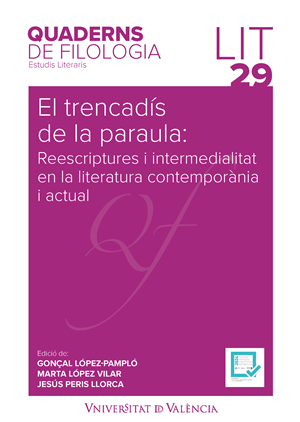To what extent is H. Heyme's The Merchant of Venice a feast for the senses and the mind?
DOI:
https://doi.org/10.7203/qdfed.29.28680Keywords:
The Merchant of Venice, Hansgünther Heyme, 2001, theatrical adaptation, Spanish reception Abstract
Abstract
The present article looks into the mechanisms employed by H. Heyme –a politically committed stage director– to convey through his production of The Merchant of Venice the play’s complex approach to the issues of race, religion and gender. It starts by analysing the Shakespearean hypotext and comparing it to the hypertextual transformation brought about by H. Heyme on V. Molina Foix’s Spanish translation of the play. It then examines the actors’ enactment of their roles as well as the relevance of visual and sound effects to his stage version. It finally delves into the paratextual statements of the play’s director and theatre critics in order to assess their perception of this production.
 Downloads
Downloads
Downloads
Published
How to Cite
-
Abstract5
-
PDF (Español)1
Issue
Section
License
 Este obra está bajo una licencia de Creative Commons Reconocimiento-NoComercial-SinObraDerivada 4.0 Internacional.
Este obra está bajo una licencia de Creative Commons Reconocimiento-NoComercial-SinObraDerivada 4.0 Internacional.
Authors who publish with this journal agree to the following terms:
- Authors retain copyright and grant the journal right of first publication with the work simultaneously licensed under a Creative Commons Attribution License that allows others to share the work with an acknowledgement of the work's authorship and initial publication in this journal.
- Authors are able to enter into separate, additional contractual arrangements for the non-exclusive distribution of the journal's published version of the work (e.g., post it to an institutional repository or publish it in a book), with an acknowledgement of its initial publication in this journal.
- Authors are permitted and encouraged to post their work online (e.g., in institutional repositories or on their website) prior to and during the submission process, as it can lead to productive exchanges, as well as earlier and greater citation of published work (See The Effect of Open Access).




